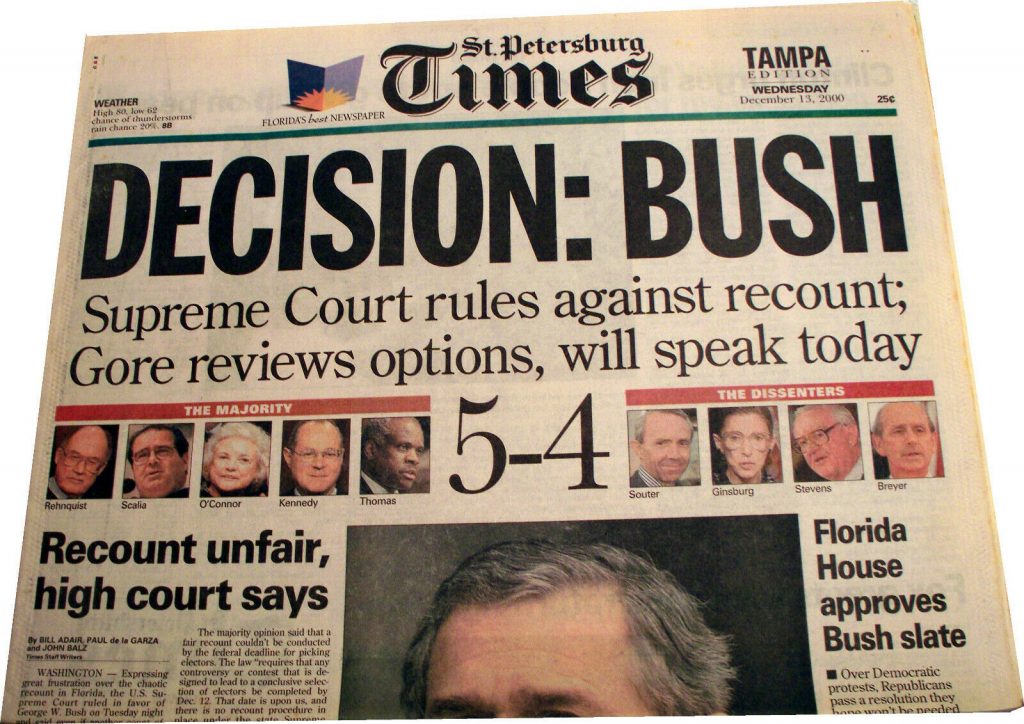Imagining a Different Millennium: What A Gore Presidency Could Have Been

The 2000 U.S. presidential election was a pivotal moment that could have steered the nation down a different path had Al Gore emerged victorious. This speculative journey explores the terrain of a Gore presidency, envisioning the themes and policies that might have characterized his tenure.
Al Gore’s Proposed Policies for the United States
Healthcare
Al Gore’s vision for healthcare was grounded in expanding coverage, particularly to children and their families. He envisioned a step-by-step plan, advocating for tax credits to render insurance more affordable alongside a Medicare expansion to cover prescription drugs.
Climate Change
Al Gore was a stalwart advocate for the environment, with a presidency potentially marked by robust efforts to combat climate change. His environmental activism was well-rooted, as reflected in his ventures like the GLOBE program and his staunch support for the Kyoto Protocol during his Vice Presidential tenure.
Income Inequality
The narrative on income inequality was not as pronounced in Gore’s platform, although his policies hinted at a bent towards economic fairness. He supported targeted tax cuts for middle and lower-income families, likely extending Clinton-era endeavors to uplift the minimum wage.
Gay Rights
A progressive stance on gay rights marked Gore’s political ethos. He opposed discrimination based on sexual orientation and was in favor of civil unions, although he did not endorse same-sex marriage at the time.
Abortion
With a pro-choice standpoint, Gore supported women’s reproductive rights, including the preservation of legal abortion, showcasing a potential presidency committed to expanding access to reproductive healthcare.
Democracy
Democracy and its fortification might have been a focal point, with Gore possibly pushing for campaign finance reform and other democratic reforms to curtail the influence of big money in politics.
9/11 Prevention and Iraq War Aversion
In this alternate reality, a proactive stance against terrorism threats might have prevented 9/11, subsequently averting the Iraq War.
It’s speculated that a Gore administration might have taken the intelligence warnings about a potential terrorist attack on U.S. soil more seriously. The hypothetical scenario suggests that without 9/11, the pretext for the Iraq War under claims of dismantling weapons of mass destruction (WMDs) and combating terrorism would have been significantly weaker.
Economic, Geopolitical, and Humanitarian Implications
- Economic: The war’s financial cost was staggering, with estimates often cited in the trillions of dollars. This expenditure could have been directed towards domestic or other global priorities in this hypothetical scenario.
- Geopolitical: The Iraq War strained U.S. relations with many allies and fueled anti-American sentiments in parts of the world. Without this conflict, the U.S. might have retained higher standing internationally.
- Humanitarian: The war led to significant loss of life, displacement, and food insecurity among Iraqis, not to mention the psychological toll on U.S. veterans.
- Environmental Pollution: The environmental degradation caused by the war resulted in lasting pollution in Iraq.
- Iran’s Influence: The power vacuum post-Saddam Hussein provided Iran an opportunity to expand its influence in Iraq and the region.
Bibliography:
- CNN. “Al Gore: I’ll make health care a right.” CNN.com, 30 May 2000, www.cnn.com/2000/ALLPOLITICS/stories/05/30/gore.health/.
- Costs of War. “The Costs of War in Iraq.” watson.brown.edu, watson.brown.edu/costsofwar.
- OnTheIssues. “Al Gore on Environment.” OnTheIssues.org, www.ontheissues.org/Celeb/Al_Gore_Environment.htm.
- OnTheIssues. “Al Gore on Health Care.” OnTheIssues.org, www.ontheissues.org/Celeb/Al_Gore_Health_Care.htm.
- PBS. “Gore’s Prescription for America.” PBS.org, 16 Oct. 2000, www.pbs.org/newshour/show/gore-s-prescription-for-america.
- Wikipedia. “Al Gore.” Wikipedia.org, en.wikipedia.org/wiki/Al_Gore.
- Wikipedia. “Financial cost of the Iraq War.” Wikipedia.org, en.wikipedia.org/wiki/Financial_cost_of_the_Iraq_War.
- World Resources Institute. “The Climate Change Message in Al Gore’s Nobel.” WRI.org, 12 Oct. 2007, www.wri.org/blog/2007/10/climate-change-message-al-gores-nobel.

